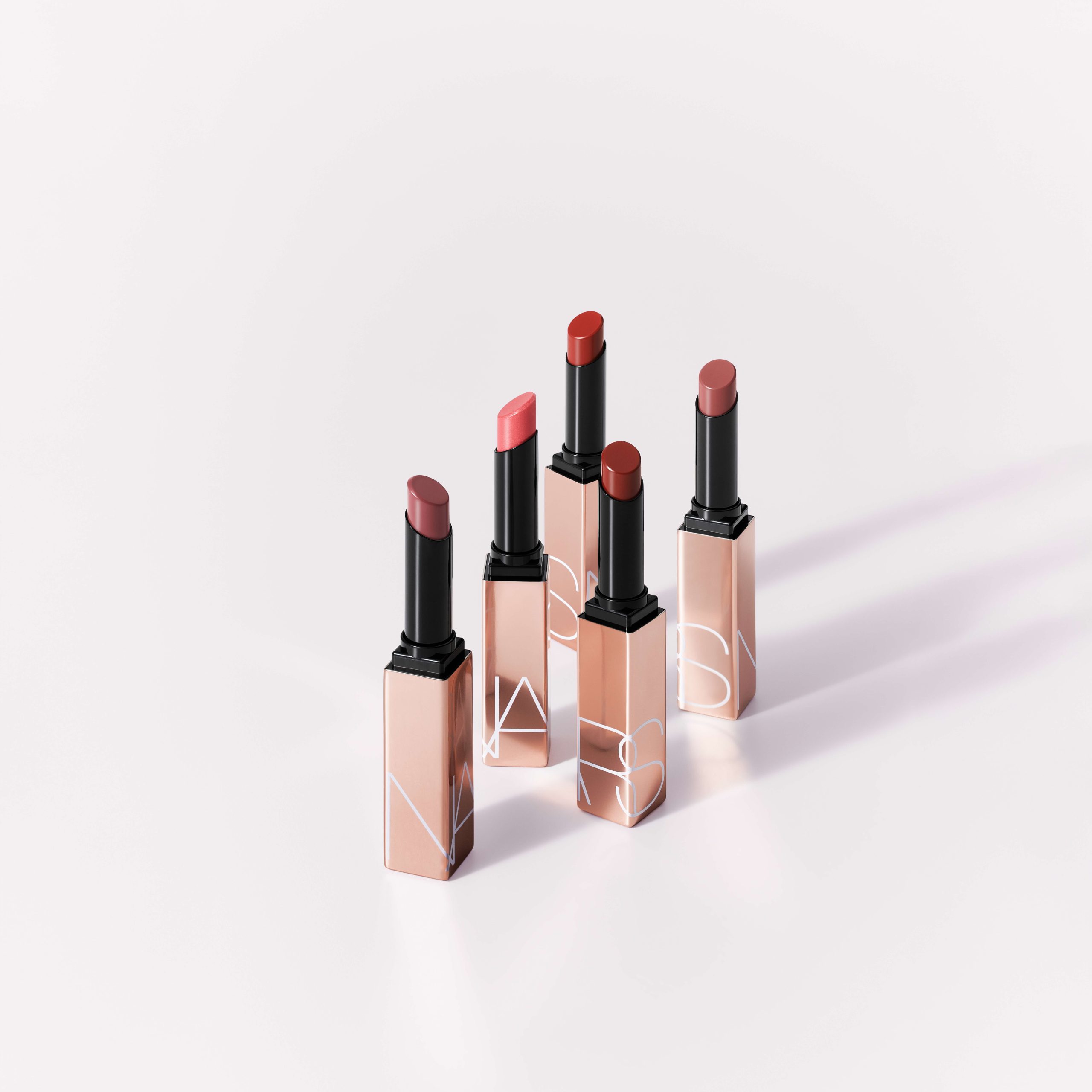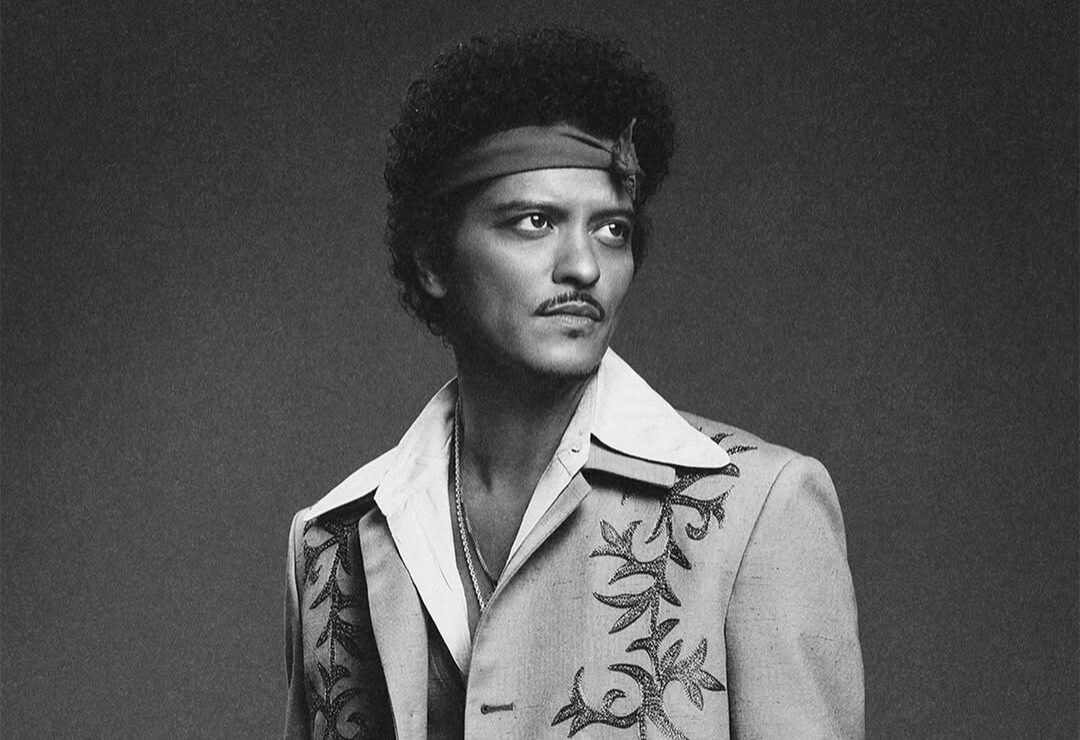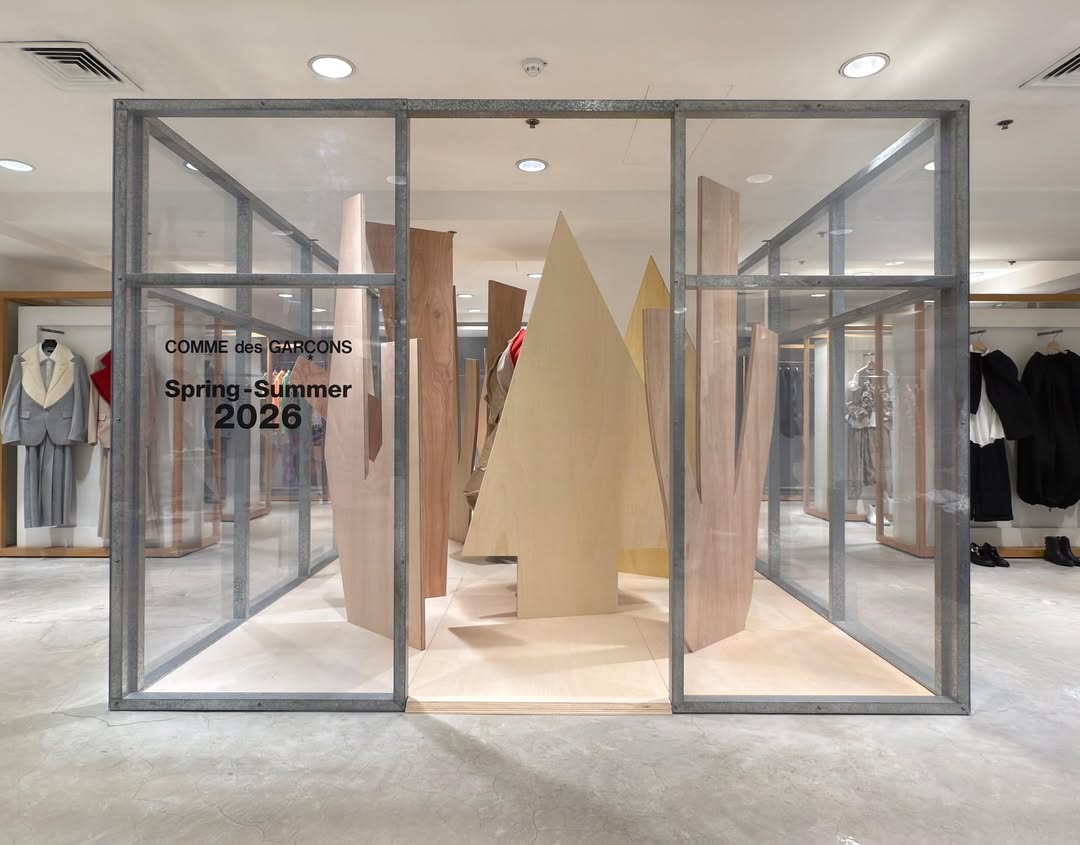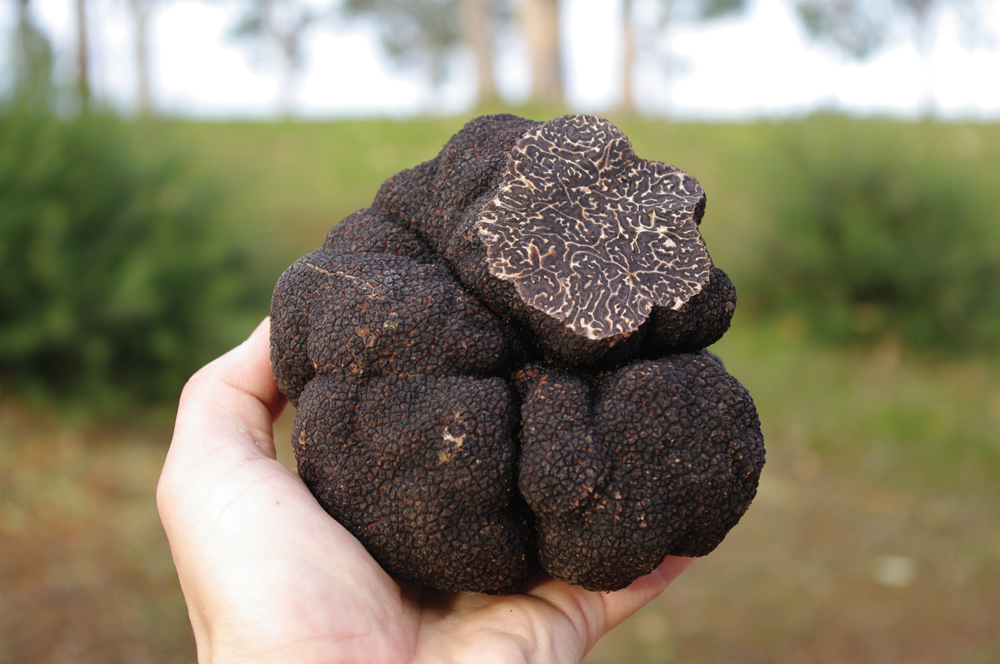
Truffles. They’re the Blake Lively of the culinary world— irresistible and glamorous. Found near tree roots by specially trained dogs, they’ve been prized for more than a thousand years and loved by the Ancient Egyptians, Greeks, Sumerians and Babylonians.
Today, this rare delicacy denotes wealth, status and taste. There are many different varieties, but until recently two have dominated: the French black Périgord (Tuber Melanosporum), harvested through the late autumn and winter, and the white Alba truffle (Tuber Magnatum Pico), which comes into season for only a few months in the autumn. Now there’s a third contender, Australian Périgord Truffles, but more on them later.
So, what is it that makes these glorified mushrooms so precious? Three of Hong Kong’s top chefs sit down to help us figure it out. Daniel Calvert of BELON, who has already won the admiration of chefs and critics alike, offers a glimpse into how the experts choose their truffles. Shane Osborn, the Michelin-starred Chef Patron of Arcane and a leading figure in the season movement, discusses what truffles actually are. Finally, the ‘King of Truffles’, three Michelin-starred Umberto Bombana of Otto e Mezzo Bombana, internationally renowned for his masterful use of the ingredient, breaks down why people love truffles.
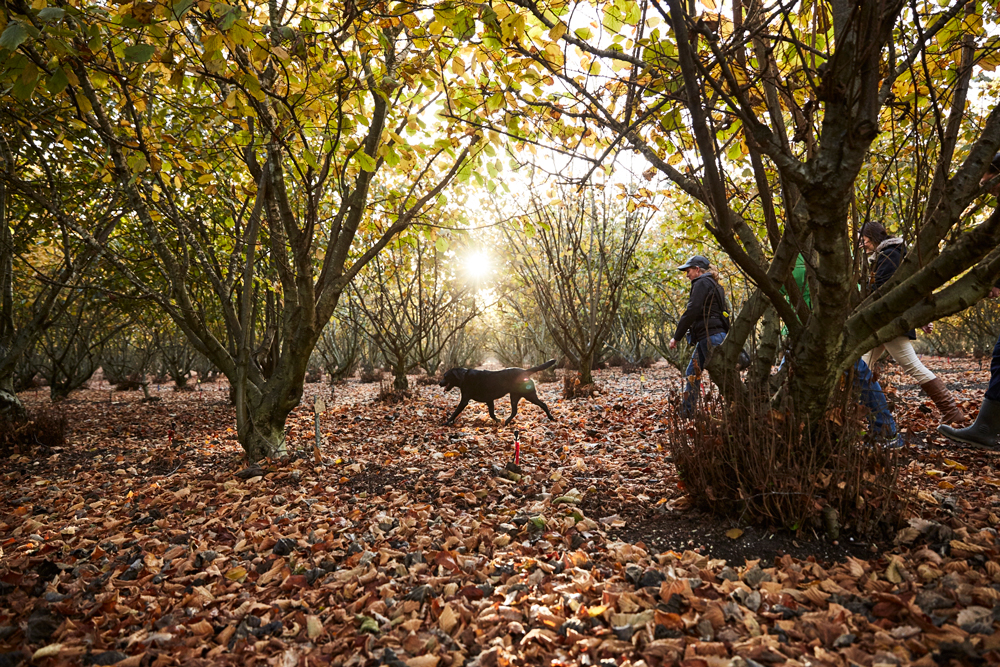
What Exactly is a Truffle? With Chef Shane Osborn
If you’ve never experienced real truffle, it’s easy to be confused about the fanfare. Those that have had the luxury of thinly sliced truffle added to their meal will understand the hype. As ingredients, they are completely unique, with complex, earthy bouquets of flavours; the black is revered for its bold taste, while the white Alba is treasured for its aroma. The white truffle is esteemed above all other varieties, the most expensive of which was purchased for HK$3,262,646 in 2010. Despite the hefty price tag, the market for truffles still grows, especially in Asia. When the largest white truffle on record, a shocking 1.89kg, went to auction at Sotheby’s New York, they held it at 9:15am to accommodate the Asian market. Rightly so, as the buyer called in from Taiwan.
With a growing demand comes growing supply. During all seasons of the year, on menus around the world, truffles are proudly featured: in mashed potatoes, macaroni, scrambled eggs and more, giving an air of sophistication to otherwise dreary dining. Many of these dishes, however, have a secret. It’s 2,4-dithiapentane, the main compound found in truffle oil. Completely synthesised – the product of olive oil and chemical compounds – truffle oil delivers an affordable and pungent dose that far overpowers the real thing, and for a fraction of the price. In fact, it’s actually changing the way people think truffles should taste.
Why Do We Love Truffles? With Chef Umberto Bombana
Though it sounds concerning, it doesn’t seem to be slowing down the demand for the real thing in Hong Kong, where we’re currently at the tail end of the newest truffle season, that of the Australian Périgord (Tuber Melanosporum), or ‘black diamond’ truffles. Only available outside of Australia for the past decade or so, chefs can’t get enough. Due to the reversed seasons in the southern hemisphere, chefs are able to combine the best of summer and winter, like sweet corn and earthy, rich black winter truffle for the first time, and the result is fantastic.
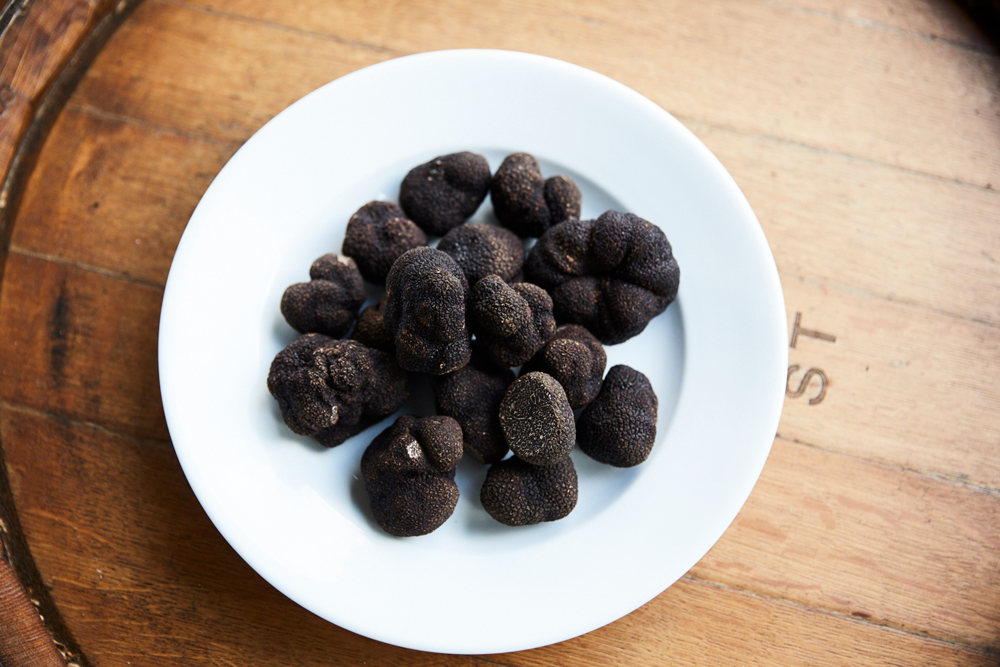 Waves Pacific is one of the premier suppliers of this new breed of truffle, bringing the tubers from the nutrient-rich soil of Western Australia to Hong Kong. Founder Jason Lo works directly with Australia’s The Truffle & Wine Company, to supply Hong Kong’s best restaurants, like Otto e Mezzo, Arcane and Belon. “We provide a very personal service, working with our clients to see what their demands are. Often times we need to explain to people that the Australian Black Truffles are the Tuber Melonasporum, and not the European Summer Truffle, which is a much lower cost and lacks character and aroma. Education is key in promoting the truffles.” This year, eight restaurants worked with Waves Pacific to create truffle menus that celebrated the short season, which ends this week.
Waves Pacific is one of the premier suppliers of this new breed of truffle, bringing the tubers from the nutrient-rich soil of Western Australia to Hong Kong. Founder Jason Lo works directly with Australia’s The Truffle & Wine Company, to supply Hong Kong’s best restaurants, like Otto e Mezzo, Arcane and Belon. “We provide a very personal service, working with our clients to see what their demands are. Often times we need to explain to people that the Australian Black Truffles are the Tuber Melonasporum, and not the European Summer Truffle, which is a much lower cost and lacks character and aroma. Education is key in promoting the truffles.” This year, eight restaurants worked with Waves Pacific to create truffle menus that celebrated the short season, which ends this week.
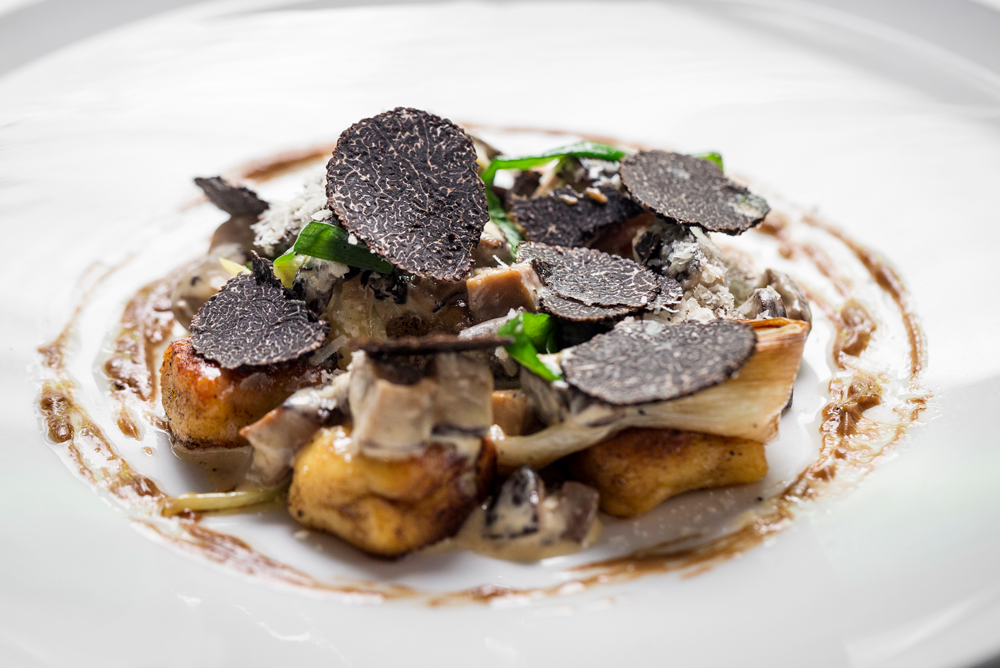
How Do You Choose A Truffle? With Chef Daniel Calvert
Calvert created a seven-course truffle menu, which included a signature Pigeon Pithivier with Fig and Amaretto. Throughout the meal, he masterfully played with the ingredient, showcasing its agility and multifaceted nature. The popcorn ice cream and Mille-Crêpe were especially innovative and moreish. Osborn highlighted his truffles through a combination of nostalgia and ingenuity, starting his menu with a deceivingly simple, truffle sandwich – an upgraded version of a childhood toastie. He kept taste buds guessing throughout the meal, transitioning from the simple to the sublime, like soft polenta with wild asparagus, charred corn and hazelnut and Japanese tomato with soft goats curd.
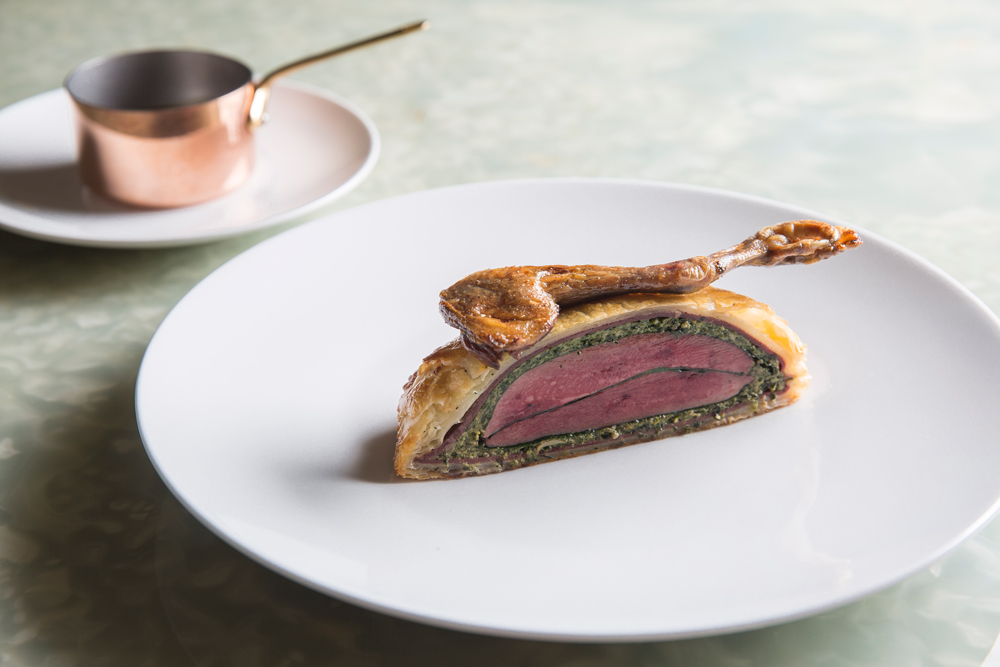
It’s not only restaurants who can get their hands on these Australian gems, Waves Pacific also sells to Individuals. The team will help you choose the perfect truffle, and send it straight to your door— complete with a pairing guide and suggested recipes. Do as the chefs do and store yours in an air-tight container with eggs or butter, the strong scent will permeate through and you’ll be able to enjoy moreish truffled eggs and butter without touching a shaver.
We’ll continue adding to this page over the next few months as we create the definitive guide to truffles in Hong Kong. Keep checking back for more information, and happy eating!
To order your own truffles, visit www.wavespacific.com. Special thanks to Daniel Calvert, Shane Osborn and Umberto Bombana for their time and wisdom. 22 Ships, Arcane, Belon, Ciak- In the Kitchen, Cochin, Gia, Giando, 81⁄2 Otto e Mezzo Bombana, Rhoda and Town all participated with seasonal menus.



